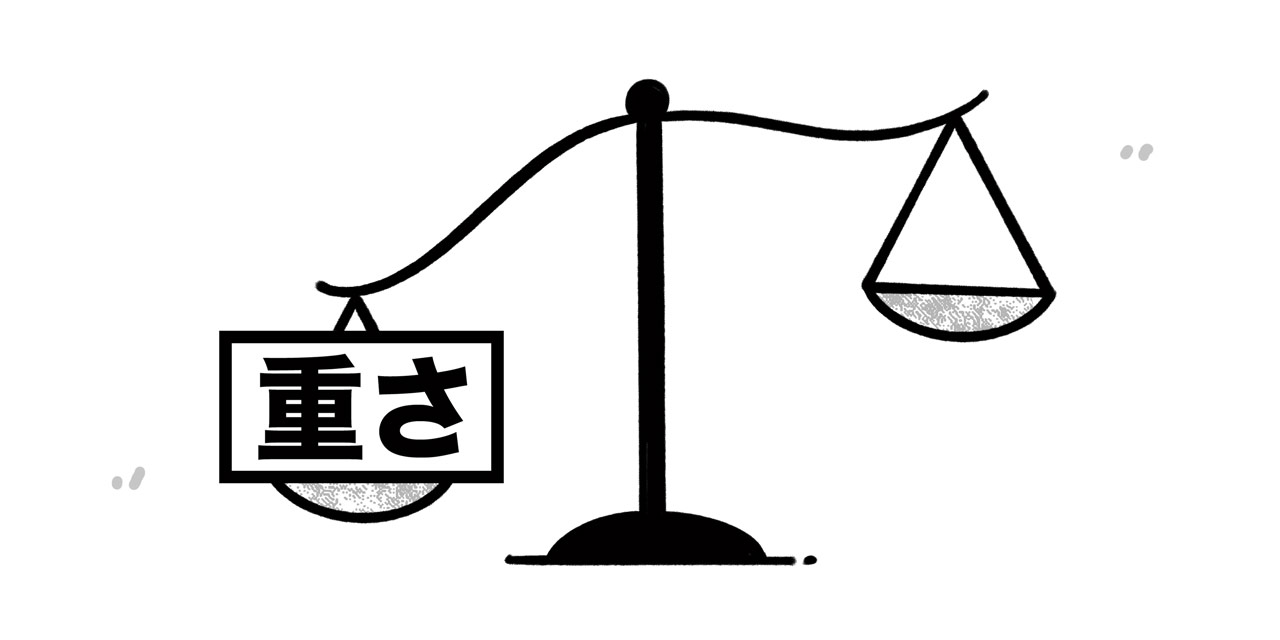Table of Contents
The Basics
〜さ is one of two suffixes that attach to adjectives and turn them into nouns. It is similar to adding "…ness" to adjectives in English, to turn them into nouns (e.g., goodness, freshness, liveliness). さ nouns tend to feel more objective and measurable compared to nouns ending in 〜み.

Forming 〜さ
Forming さ nouns is simple. Just remove the present tense ending 〜い from い-adjectives or the な from な-adjectives, and add 〜さ to the stem form.
高
い+ さ → 高さ
便利
な+ さ → 便利さ
Unlike the suffix 〜み, just about any adjective can 〜さ to form a noun.
Using 〜さ with い-Adjective Forming Suffixes
You can combine 〜さ with other suffixes like 〜たい, 〜やすい, 〜にくい, 〜らしい , 〜づらい, and 〜っぽい, which all turn other word types into い-adjectives. For example:
使う → 使いやすい → 使いやすさ
to use → easy to use → usability
男 → 男らしい → 男らしさ
man → manly → manliness/masculinity
行く → 行きたい → 行きたさ
to go → want to go → eagerness to go
Uses
〜さ for Expressing Objective Amount
The fundamental use of さ nouns is to express amounts that are objectively measurable.
- 空港へ行く前に、カバンの重さを測りました。
- I measured the weight of my luggage before going to the airport.
- プールの深さを確認してから入ろう。
- Check the depth of the swimming pool before you get in.
Beyond the Basics
〜さ for Presenting Subjective Qualities as Objective Truths
〜さ can be also used with adjectives that express subjective qualities, such as 優しい (kind), 難しい (difficult), and 面白い (interesting). Despite the fact that these adjectives may feel subjective in nature, using the 〜さ form of these adjectives creates a sense that the quality being described is objective, or is an external truth. This stands in contrast to み nouns, which suggest a more personal, internally felt quality.
- テストの難しさを予想する。
- I can imagine how difficult the test is going to be.
While 難しい may feel like a subjective quality, the use of 〜さ allows us to treat it like an objective "level of difficulty." Depending on the context though, it might also take on a more subjective feel as well. That said, because 難しい cannot take 〜み as a suffix, using 〜さ is your only choice. Some adjectives though, can take both:
- あの映画は面白みに欠けている。
- The movie is lacking an element that intrigues me.
- あの映画は面白さに欠けている。
- The movie is lacking any interesting elements (to everyone).
In the first example, 面白み makes it clear that this "intriguing element" the movie lacks is one that is felt personally and internally by the speaker. In the second example, 面白さ indicates that this missing element of intrigue is one that everyone would likely agree upon.
〜さ in Opposite Pairs
さ nouns that are in opposite pairs (big and small, tall and short) tend to have different meanings on the positive ends of those spectrums. The positive ends usually represent the entire idea of that measurement. For example, when we use 大きさ (bigness), it often means "size," while the opposite end of the spectrum, 小ささ (smallness), only means "smallness" and doesn’t represent the concept of size as a whole. When we use 速さ (quickness), it often means "speed," while 遅さ (slowness) can only mean slowness. To represent the entire concept of measurement between two extremes, adding 〜さ to positive end usually does the trick.